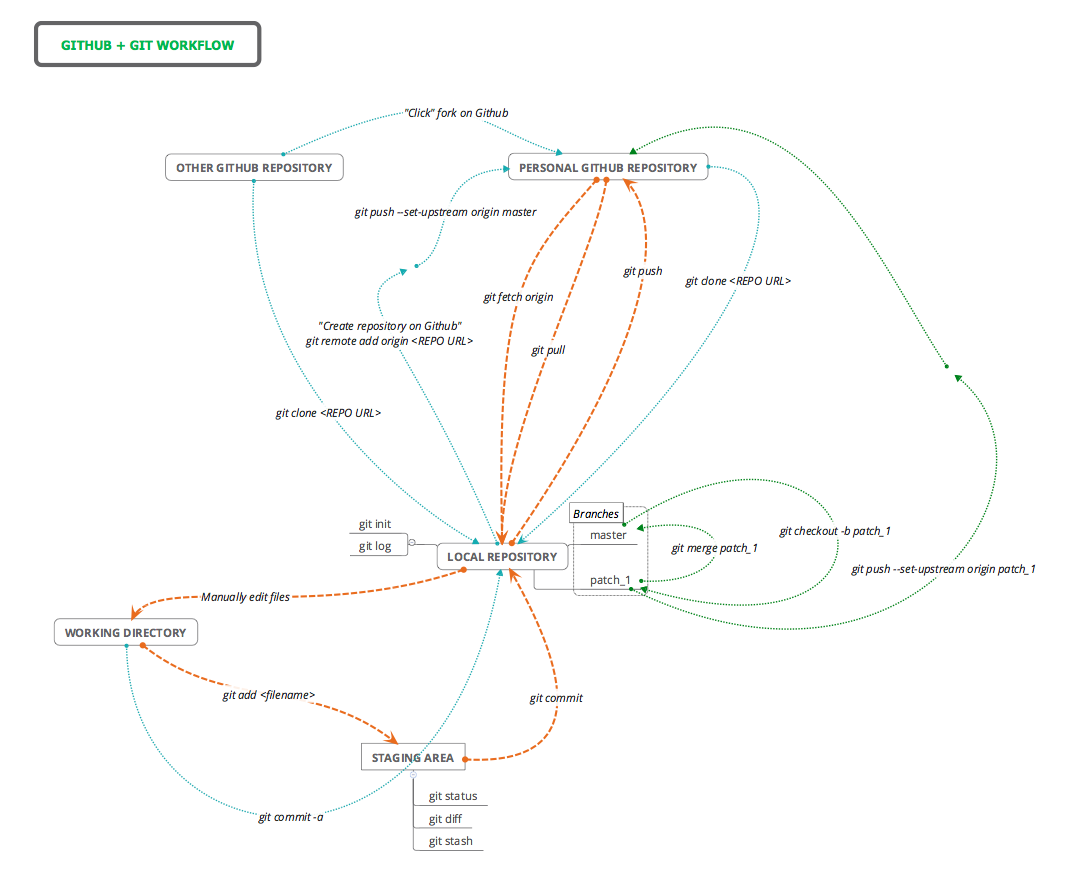
GitHub Mastery: Code Version Control Unleashed
The use of version control systems is a cornerstone in modern software development, and GitHub stands out as a powerhouse in this realm. Let’s explore the dynamics of code version control with GitHub, unraveling its significance, and delving into the strategies that contribute to mastery in this essential aspect of programming.
Understanding the Basics of Code Version Control
Code version control is a systematic approach to tracking changes in code over time. GitHub, a web-based platform built around the Git version control system, offers developers a collaborative space to manage and track code modifications efficiently. Understanding the basics of version control is fundamental for harnessing the full potential of GitHub.
Now, if you’re eager to delve deeper into code version control with GitHub, consider exploring Code version control with GitHub for tailored resources and insights to enhance your skills.
Collaborative Development: GitHub as a Hub
GitHub’s essence lies in its ability to facilitate collaborative development. Multiple developers can work on the same project concurrently without conflicting changes. The platform provides tools for merging and resolving conflicts, ensuring smooth collaboration. GitHub’s collaborative features make it a central hub for team-based software development.
Branching Strategies for Efficient Workflows
One of GitHub’s strengths lies in its branching and merging capabilities. Implementing effective branching strategies allows developers to work on separate features or fixes independently. This not only enables parallel development but also ensures a structured approach to incorporating changes into the main codebase, leading to efficient workflows.
Pull Requests: Facilitating Code Reviews
GitHub’s pull request mechanism is a powerful tool for code reviews. Developers propose changes, and through pull requests, team members can review, comment, and suggest modifications before merging. This collaborative approach enhances code quality, fosters knowledge sharing, and serves as a valuable learning tool for developers.
Issue Tracking and Project Management
GitHub goes beyond version control by offering robust issue tracking and project management features. Developers can create, assign, and track issues, enabling effective bug tracking and task management. GitHub Projects further enhance organization by providing boards to manage tasks and track project progress visually.
Continuous Integration and Automation with GitHub Actions
GitHub Actions empowers developers to automate workflows directly within GitHub. This includes continuous integration, automated testing, and deployment processes. Leveraging GitHub Actions streamlines development pipelines, enhances code quality, and accelerates the delivery of reliable software.
Security and Code Review Integrations
GitHub places a strong emphasis on security, offering features like code scanning, dependency tracking, and secret scanning. Integrating these tools into the development process enhances code security by identifying and addressing vulnerabilities early in the development lifecycle. Code review integrations further bolster code quality and security.
Documentation as Code: Wikis and README Files
Documentation is an integral part of any software project, and GitHub supports a “Documentation as Code” approach. Wikis and README files hosted on GitHub become living documents that developers can update alongside code changes. This practice ensures that documentation remains accurate, up-to-date, and easily accessible to collaborators.
Community Engagement and Open Source Collaboration
GitHub serves as a hub for open source collaboration, allowing developers to contribute to and explore a multitude of projects. Participating in open source projects on GitHub provides valuable learning experiences, exposes developers to diverse coding styles, and fosters a sense of community and collaboration within the global developer community.
Learning Resources and GitHub Education
GitHub is not just a platform for collaboration; it is also an educational resource. GitHub Education offers a variety of tools, resources, and training opportunities for students and educators. Leveraging these resources enhances learning and prepares individuals for successful careers in software development.
Conclusion
In conclusion, mastering code version control with GitHub is pivotal for modern software development. The collaborative features, branching strategies, pull requests, and automation capabilities make GitHub a versatile and powerful platform. Embracing GitHub not only enhances individual proficiency but also contributes to a thriving global community of developers. If you’re ready to unlock the full potential of GitHub, explore Code version control with GitHub for tailored resources and insights to advance your skills in this essential aspect of programming.
